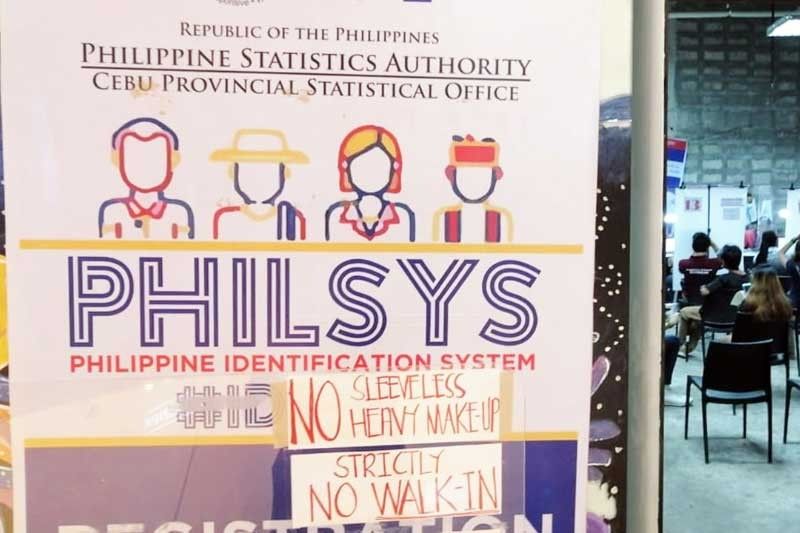PhilSys needs adequate digital infrastructure

To promote the country’s digital readiness and competitiveness in the post-pandemic world economy, the government has to accelerate the long delayed implementation of the PhilID envisioned to be the trusted and unified identity verification provide a single national identification verification system for all citizens and resident aliens in the country.
There were already 76.01 million internet users in the Philippines in January 2022 and the number is expected to rise to around 100 million this year.
As more Filipinos become netizens and thus consumers of digital services and online transactions, the need to address the ongoing threat of online scammers and cybercrime syndicates stalking the internet and mobile networks is now a serious risk to both individual and big enterprise users.
The Philippine News Agency reported that digital fraud originating from the Philippines has reportedly decreased by 11% in April to June 2022 compared to the same period in 2021. This is encouraging, but still, there is a need to institute strong anti-fraud and authentication practices to sustain consumer confidence in e-commerce purchases which is fast becoming the preferred mode of shopping.
In light of these concerns and as a consumer rights advocate, I note with some optimism the passage into law in August 2018 of Republic Act 11055, or the Philippine Identification System (PhilSys) Act and it’s game-changing effect of simplifying public and private transactions.
The PhilSys will serve as an enabling social and economic platform that promotes seamless social service delivery, promote financial inclusion, and open opportunities for small merchants in the underground economy to evolve into the mainstream ecosystem.
If implemented and executed right, the result would be secure and efficient in-person or online transactions which is key in the government’s drive to become a competitive player in the global digital economy.
Identity verification is basic in any transaction whether you are the buyer or seller. In fact, for financial institutions like banks, to know your customer (KYC) is a strict policy for all financial institutions set by the Bangko Sentral ng Pilipinas.
As e-commerce is now integrated in various social media platforms, and as many experienced during the lockdowns of the pandemic, it is so easy to do peer-to-peer transactions online.
However, this easy online transactions exposes both the seller and the buyer to fraudsters and scammers shielded by their pseudo identities. These unscrupulous practices are often just charged to experience as the transactions are too small and not worth the trouble and expense.
When PhilSys is integrated in the virtual marketplace, fake identities can be purged from social media and shopping platforms and the real identities and information relevant to the transaction will be available for both parties of an online transaction. This would nurture more participation in the e-commerce ecosystem.
Law enforcement could be enhanced as only criminal elements would really want their identities concealed and will thus be isolated from the ecosystem. Integrating the PhilSys with a criminal tracking system will boost the crime fighting capabilities of the Philippine National Police.
With this comes to mind the implementation of the SIM Registration Act that also aims to help address the threat of cyber criminality.
The PhilID can be linked to each SIM by default making each call and SMS message traceable to the individual subscriber. Any illegal or offensive behavior will be visible for which the user will be liable.
According to the National Telecommunications Commission (NTC), only 8.31% of all SIM cards issued by telcos based in the Philippines have been registered as of Jan. 4, 2023. Had the PhilSys been already fully operational, the ongoing SIM registration could have in been greatly facilitated.
It must be pointed out that PhilSys is not just about issuing a physical card to replace all our other valid IDs. This is about building a nationwide digital network on a with a database and verification system that will enable each point of transaction to immediately authenticate a person’s identity.
With the advancements in and low cost of biometric authentication technologies, a physical card won’t really be needed at all. Hence, imagine for instance how the PhilSys could greatly facilitate the provision of much-needed services like in hospitals where filling out so many documents are required to the great stress and inconvenience of patients needing immediate medical attention.
This integration of specific digital technologies is not new and is already being used by consumers in their personal gadgets where identification is verified and transactions fulfilled swiftly with one-time pins (OTP), or other means of digital authentication. Biometrics can be the primary or an added layer for secure transactions.
The official PhilSys website states the systemically transformative benefits of an operational national ID system including making public services more accessible, promoting ease of doing business to boost economic growth, and greater transparency and accountability in governance which the private sector considers as a major factor in attracting more foreign investments.
It has to be underscored that all these gains and the overall success of the national ID system will hinge on the development of a digital infrastructure that can deliver stable and fast connectivity on a nationwide scale and this is where public-private partnerships with the digital and telecommunication industry are crucial.
The PhilSys and all the digitization objectives of government will require fast and stable connectivity which will need huge capital investments. Building the digital infrastructure backbone and last mile connection to each individual and enterprise user can be realized by aligning government assets and funding resources with the already aggressive investments of the private telcos to upgrade broadband services.
Louie C. Montemar is a fellow for education at the think tank Stratbase ADR Institute and professor of Sociology and Political Science at the PUP.
- Latest

























